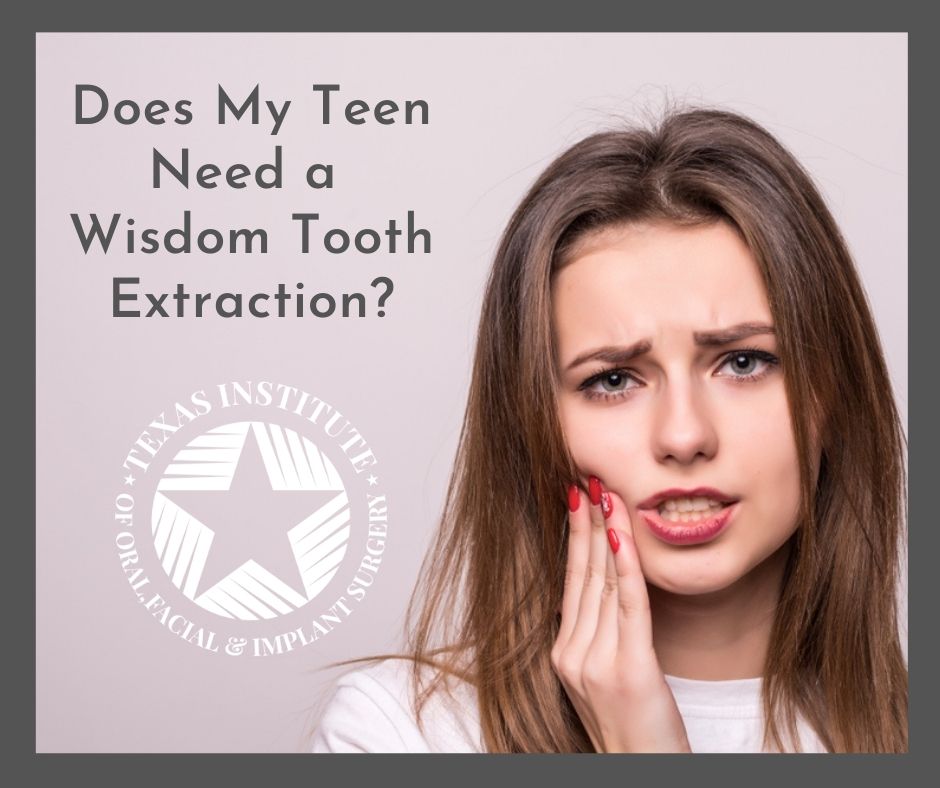
Wisdom teeth are the final set of molars that your teen will develop. Typically, a wisdom tooth can make an appearance on X-rays during early adolescence or continue developing well into a person’s late 20s. But the teen or college years tend to be the most common time for third molars to evaluated and if they’re going to cause problems.
Fortunately, proactive wisdom tooth removal can minimize discomfort and eliminate the unwanted side-effects of impacted teeth.
Here’s how to know whether your teen is ready to have their wisdom teeth removed:
Jaw Pain Caused by Wisdom Teeth
Wisdom teeth pain tends to come and go as they develop and attempt to erupt. More often than not, wisdom tooth pain will eventually become more persistent, without relief between flare-ups. It’s at this point when you know that you need to go ahead and see our oral surgery specialists at Texas Institute of Oral, Facial & Implant Surgery to have the wisdom tooth evaluated.
It Hurts to Eat or Brush Their Teeth
Although it’s been years since you had a toddler going through teething pains, it’s common for teens with erupting or impacted wisdom teeth to experience similar discomfort. They may mention that food is getting caught around their back teeth, making their gums sensitive. Brushing may feel uncomfortable, or they might notice that it’s sore when they bite down during meals.
The X-ray Shows Wisdom Tooth Impaction
Impacted wisdom teeth can cause serious dental complications like:
- Cysts or tumors
- Damage to adjacent teeth
- Increase in tooth decay, gum disease
- Crowding or orthodontic relapse
Thanks to 3D CBCT technology, we can view your teen’s impacted wisdom teeth from every angle to get an in-depth view of what’s going on inside of their jaw.
Wisdom Teeth Extraction Midlothian
Our Midlothian oral surgeon provides wisdom tooth removal exams for teens and college students. No referrals necessary. Contact us today to request a one-on-one consultation in Ellis County.




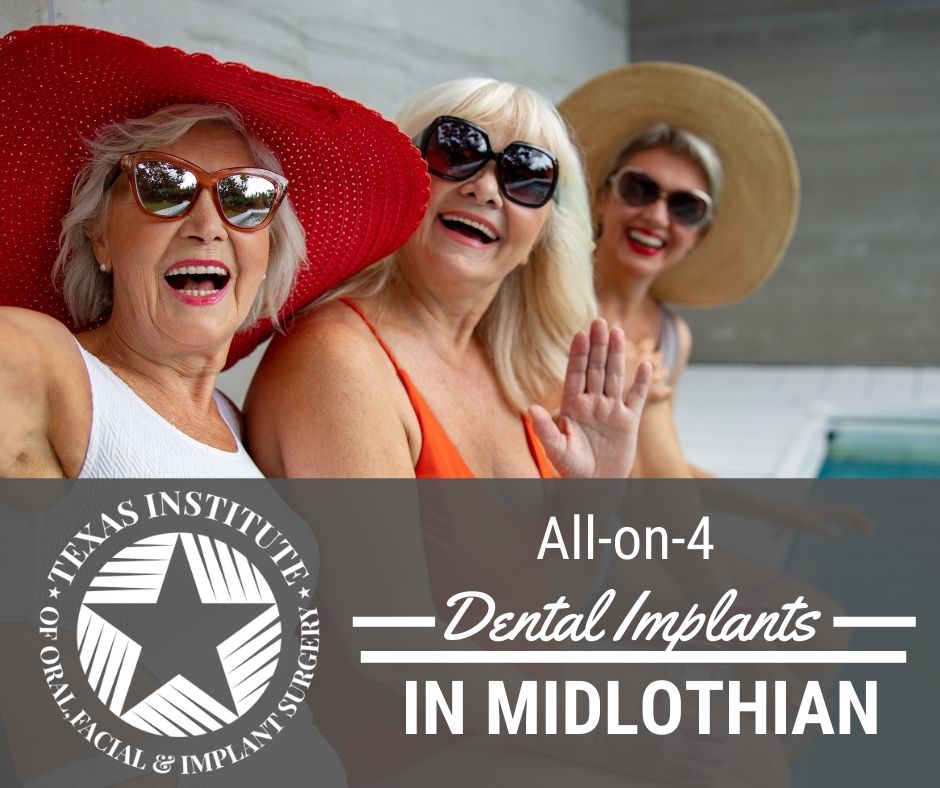
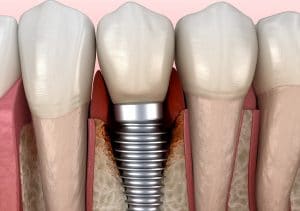 Today’s modern tooth replacement options, like dental bridges and dentures, are typically designed to blend in almost seamlessly with your healthy, natural teeth. The importance of this goes beyond the restoration’s appearance, though. Mimicking the size, shape, and contour of your natural teeth also makes the restoration more able to restore your bite’s ability to function properly. Yet, without the help of dental implants, even the most lifelike restoration lacks the ability to mimic the support of your natural teeth. By providing it with this support,
Today’s modern tooth replacement options, like dental bridges and dentures, are typically designed to blend in almost seamlessly with your healthy, natural teeth. The importance of this goes beyond the restoration’s appearance, though. Mimicking the size, shape, and contour of your natural teeth also makes the restoration more able to restore your bite’s ability to function properly. Yet, without the help of dental implants, even the most lifelike restoration lacks the ability to mimic the support of your natural teeth. By providing it with this support,  When wisdom teeth (or third molars) start to cause problems due to impaction, the need to extract them can become a pressing one. However, wisdom tooth impaction can occur in many different ways, and the severity of the symptoms aren’t always the same for everyone. In many cases, these symptoms may not be immediately noticeable until the impaction has become severe. Today, we examine a few of the common signs that your
When wisdom teeth (or third molars) start to cause problems due to impaction, the need to extract them can become a pressing one. However, wisdom tooth impaction can occur in many different ways, and the severity of the symptoms aren’t always the same for everyone. In many cases, these symptoms may not be immediately noticeable until the impaction has become severe. Today, we examine a few of the common signs that your  Many of the benefits that come with replacing lost teeth with dental implants involve the long-term health and integrity of your smile. For instance, dental implants help restore stimulation that’s necessary to maintain the health and integrity of your dental ridges. However, many of the benefits are also more immediately noticeable, and can directly impact the quality of your restoration as well as its daily care and maintenance. Today, we look at a few important aspects of
Many of the benefits that come with replacing lost teeth with dental implants involve the long-term health and integrity of your smile. For instance, dental implants help restore stimulation that’s necessary to maintain the health and integrity of your dental ridges. However, many of the benefits are also more immediately noticeable, and can directly impact the quality of your restoration as well as its daily care and maintenance. Today, we look at a few important aspects of 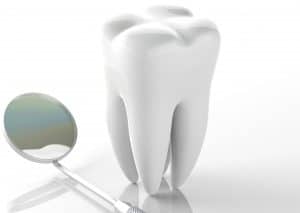 Tooth loss isn’t something that everyone will have to deal with, but it’s something that everyone should worry about preventing. That’s because many of the causes that lead to it can affect almost anyone, such as severe gum disease. Once it does occur, however, the consequences of tooth loss can pose even greater threats to your oral health than you might realize. Today, we examine a few of these consequences, and why
Tooth loss isn’t something that everyone will have to deal with, but it’s something that everyone should worry about preventing. That’s because many of the causes that lead to it can affect almost anyone, such as severe gum disease. Once it does occur, however, the consequences of tooth loss can pose even greater threats to your oral health than you might realize. Today, we examine a few of these consequences, and why  Tooth loss is what most people try to avoid by practicing good hygiene and attending regular dental visits. Unfortunately, teeth may be lost for a wide variety of reasons, and some are not always preventable. The good news is that high-quality dental care also includes restoring your smile after tooth loss as well as preventing it. For many people who experience tooth loss, the potential consequences of the loss can often be mitigated with the help of dental implants. By
Tooth loss is what most people try to avoid by practicing good hygiene and attending regular dental visits. Unfortunately, teeth may be lost for a wide variety of reasons, and some are not always preventable. The good news is that high-quality dental care also includes restoring your smile after tooth loss as well as preventing it. For many people who experience tooth loss, the potential consequences of the loss can often be mitigated with the help of dental implants. By 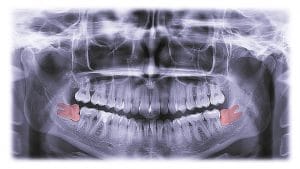 Some people know enough about wisdom teeth – the common name for third molars – that they almost expect theirs to cause trouble at some point, even if they haven’t yet. Others may be completely surprised when their wisdom teeth start to hurt, believing that theirs were growing and developing just fine. When wisdom teeth do start to cause problems, the common solution is to surgically extract them. In some cases,
Some people know enough about wisdom teeth – the common name for third molars – that they almost expect theirs to cause trouble at some point, even if they haven’t yet. Others may be completely surprised when their wisdom teeth start to hurt, believing that theirs were growing and developing just fine. When wisdom teeth do start to cause problems, the common solution is to surgically extract them. In some cases, 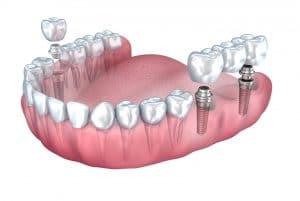 When you’ve experienced tooth loss, restoring your smile from it is about more than just restoring its appearance before the loss. That appearance might be the first thing that people notice about your condition, but it isn’t what has the greatest impact on your overall oral health, or bite function. Therefore, to truly restore your smile, you have to address more than just your smile’s appearance, but also the loss of the function that the tooth served. This is only possible by replacing all of the tooth’s lost structure, including the root, which is
When you’ve experienced tooth loss, restoring your smile from it is about more than just restoring its appearance before the loss. That appearance might be the first thing that people notice about your condition, but it isn’t what has the greatest impact on your overall oral health, or bite function. Therefore, to truly restore your smile, you have to address more than just your smile’s appearance, but also the loss of the function that the tooth served. This is only possible by replacing all of the tooth’s lost structure, including the root, which is 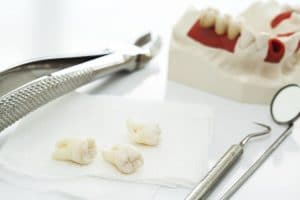 In many ways, maintaining your oral health can be both simple and complex at the same time. For instance, the basics of good dental hygiene are fairly easy – brush your teeth at least twice a day and floss at least once. However, what if the plaque you’re supposed to clean with your toothbrush and floss works its way underneath your gums? Or, if you have multiple, seemingly harmless oral health conditions that contribute to more severe complications, like tooth loss? The many different factors that go into preserving your smile might complicate things sometimes, which is why it’s important to understand the potential risks that can
In many ways, maintaining your oral health can be both simple and complex at the same time. For instance, the basics of good dental hygiene are fairly easy – brush your teeth at least twice a day and floss at least once. However, what if the plaque you’re supposed to clean with your toothbrush and floss works its way underneath your gums? Or, if you have multiple, seemingly harmless oral health conditions that contribute to more severe complications, like tooth loss? The many different factors that go into preserving your smile might complicate things sometimes, which is why it’s important to understand the potential risks that can